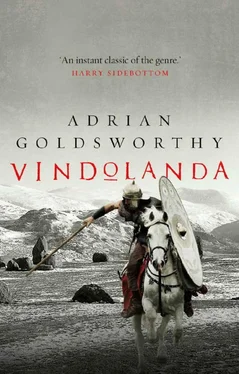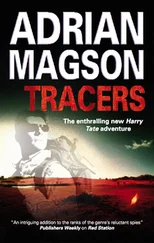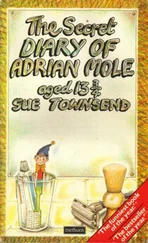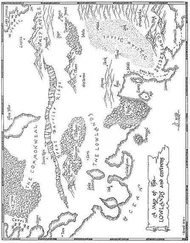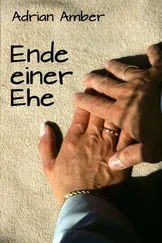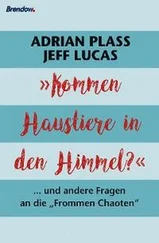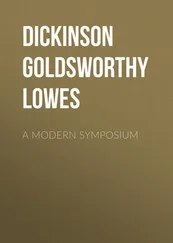A great shout went up from the enemy line and trumpets blared.
‘Must have upset ’em.’ Vindex had to shout the words.
The enemy surged forward a good hundred paces, before their spirit sagged and they slowed and then stopped. Chariots and a few horsemen went closer, the warriors screaming abuse at the Roman line, but the soldiers remained silent. It was never easy to make men charge at a waiting enemy, and Ferox had seen plenty of battles that started as gradually as this. The bands of Britons started chanting again and the trumpets still sounded, the deeper note of cow horns alongside the harsh blare of carnyxes.
Flaccus was in command of the cavalry on the Roman right, and ordered the exploratores to form up next to the cohort of II Augusta. Ferox had half his men, including all the Brigantes, back as a second line fifty paces behind the first. On his right, the decurion Masclus had two turmae of Batavians from cohors VIIII, supported by another from cohors III Batavorum in reserve. The legionary horsemen were in a third line.
For the moment most of the enemy were content to hurl defiance at the Romans. A few horsemen cantered closer to them, well within long bowshot, but for the moment the legate ordered all his men including the archers to wait. He wanted the enemy confident, wanted them to come on.
Opposite Ferox and the cavalry on the right wing were a few chariots, and some of them began to come forward as well. One, its car painted a bright green, rushed ahead of the rest, heading for the Romans, before it swerved and ran along in front of the massed warriors. The driver was small and hunched as he worked his team of a grey and a black – a combination Ferox’s people always said was unlucky. He hoped they were right, for the warrior in the back was tall and stark naked apart from a torc at his throat. His skin was covered in tattoos and he waved a stag’s head, complete with antlers, in his hand. It was the Stallion, and Ferox wished that there was time to pass the word so that one of the scorpiones could drive a bolt through the man while he was in range. The chariot drove on, sending up a spray of mud as the wheels hit a puddle, but none of the engines or archers shot and the priest drove past unscathed and was soon out of range. His followers shouted even louder, and they broke ranks and flooded forward another hundred paces before staggering to a halt again.
The Romans waited. Ferox could see the men of II Augusta as they stood in formation, shields on the ground resting against their legs, and pila held upright, butts on the ground. They had left their cloaks with the baggage, and even with breeches, tunics and padded jerkins he knew that they would be cold, for no armour, not even the banded cuirass that only legionaries wore, was ever any good at keeping out the cold. He did not know these men, for this cohort had not served in the punitive expedition, but their faces looked familiar, like so many other soldiers he had known. Today those faces were taut, for no one liked waiting, and all of them could count. He wondered how many had never fought in a battle before, and guessed that that was most of them, even among the few older faces creased by weather and suffering. One man had taken off his helmet to adjust the woollen hat he wore underneath. He had a thick beard, the dark brown mottled with grey. An optio pacing up and down behind the line bellowed at him for being improperly dressed, and the soldier glanced at him and hesitated just long enough to make a point and not quite long enough for it to be insubordination before he put his helmet back on and retied the cheek pieces.
The Britons had stopped again, no more than two hundred paces away. Ferox saw much shouting and jostling as they were pushed back into an ordered rank. Here and there were groups of true warriors, as obvious from the way they stood and their bearing as their better equipment. These men had oval shields, a spear and often a javelin or two, all backed by a sword. Quite a few had helmets and some even armour. Yet most of the front rank was made up of simply dressed men carrying every sort of weapon – proper spears and sharpened sticks, axes, hammers or long knives, with just a few swords. They were the sort of men usually found at the back of a warband when an entire tribe went to battle, and they came because their chieftains demanded it, but they were of little account. Today they looked different, filled with the passion of their leader and all his hatred for Rome.
Ferox walked his horse a few lengths ahead of his men so that he could see better and looked to the north.
‘There’s plenty of them,’ Vindex said. The closest were more than a mile away, but there were many thousand warriors coming towards them. Leading them were plenty of cavalry and more chariots than Ferox had seen earlier in the day. He guessed that there would be far more true warriors among that force, and wondered how many other kings had sent bands. Men like Gannascus might not fight unless it was clear that the Romans were losing, or the high king and others may have tricked the Romans all along, in which case, as Vindex might say, they were royally humped.
‘We need to get on with it,’ Vindex said.
‘Stay with your men,’ Ferox told him. ‘Just for once I need you to obey orders.’
The Brigantian’s skull-like face split into a grin. ‘Well, I suppose we’re not being paid for this, so we could bend the rule just once.’
There was a sharp sound, like the crack of a whip but much deeper, and suddenly the enemy went quiet. Ferox had not seen a war engine shoot for some years, and had almost forgotten the violent force of its missiles. He saw a gap in the enemy’s front line. A warrior was down, his shield pinned to him, the bolt having driven through his mail shirt deep into his body. The blow flung him back, knocking several other men over, and Ferox watched as they staggered up. More of the scorpiones stung, the bolts flying with great accuracy as the crews picked out men from the bands facing them and killed them. The legionaries cheered when one bolt drove through a man so hard that the point came out the other side and pinned him to a second Briton. The pair staggered about, men jumping out of their way as if they had some curse, until the first man collapsed forward, pulling off the shaft of the bolt as he fell.
Archers scampered forward and began to shoot. More men dropped, for most of the Britons carried only the small square shields used by the Selgovae and the Votadini. They were handy enough, but with no room to dodge because of the press of men, they offered little protection from missiles. The front of each warband rippled as men were struck, the quiver more savage whenever a bolt from one of the engines slammed into its victim.
With a low rumble like a distant swarm of bees, the Batavians began to chant the barritus. The legionaries remained silent, and Ferox knew that to the watching enemy the Romans would seem strangely impassive, almost inhuman. The Britons were screaming again and blowing their horns. Some started forward, but others called to them to stay. Then their yelling grew so loud that it drowned out the rising chant of the Batavians and Ferox saw that the Stallion was driving along in front of his men again. A scorpio spat out its missile, but the bolt whisked past the heads of the two ponies and slammed into a man standing in the front rank. Arrows missed and the man rode on until, at a gesture, the charioteer slowed down and the naked priest jumped to the ground. As soon as he was on the grass a bolt hit his charioteer in the head and pitched him over, while a second drove deep into the black pony’s belly, so that it reared and screamed. A dozen arrows sped towards them, killing both horses, without touching the Stallion apart from one that stuck in the stag’s head. Ferox saw him spit on the arrow and then pull the headdress on. Men appeared, handing him sword and shield, which he raised high as he yelled. The words were unclear, until the whole army took up the cry.
Читать дальше
